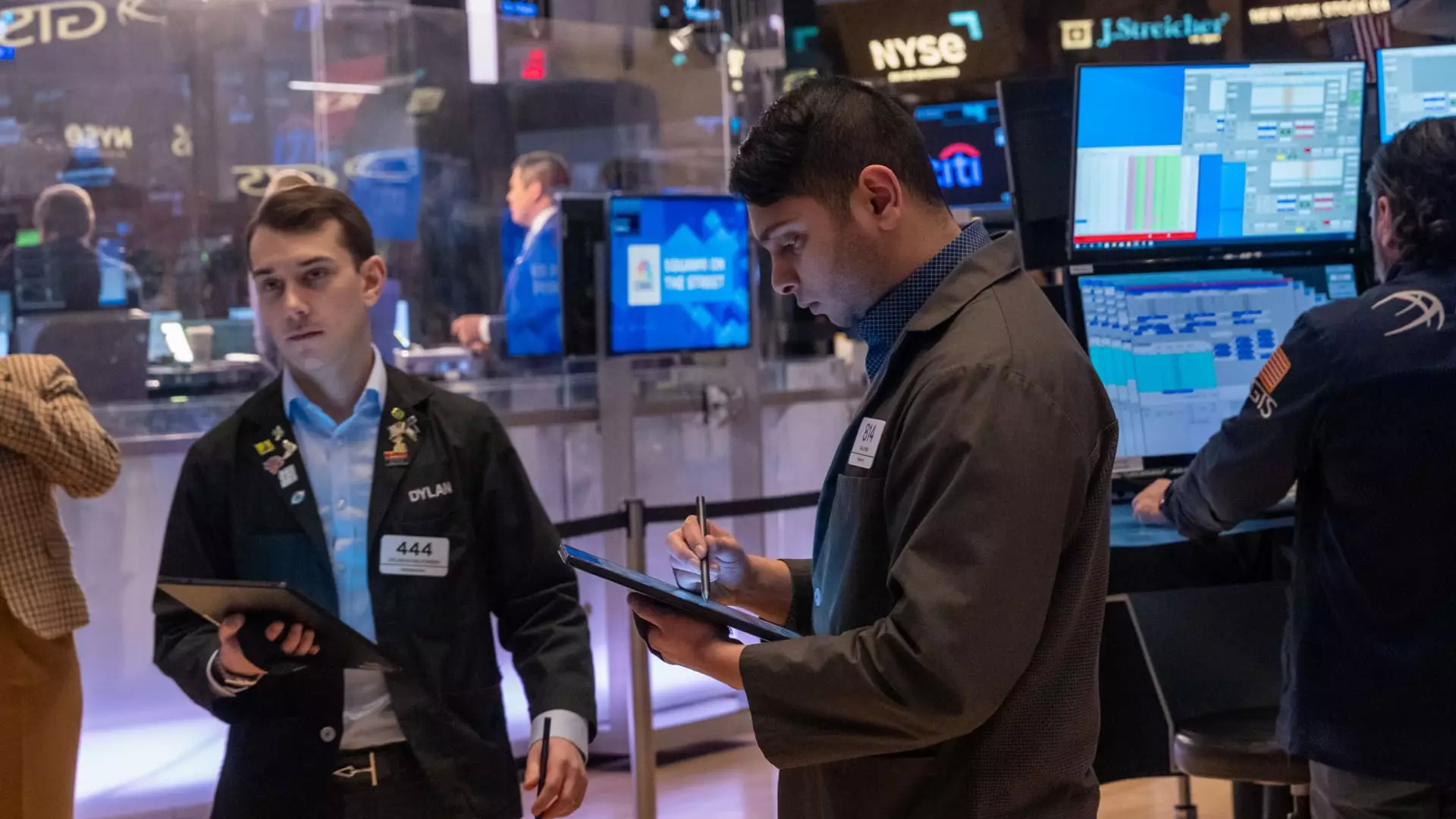In a world increasingly tethered to capricious trade policies, the stock market’s current approach to tariff risks appears not only naïve but dangerously shortsighted. Mandy Xu, head of derivatives market intelligence at CBOE Global Markets, recently indicated that the equity markets are drastically underpricing the potential ramifications of escalating tariffs. While the bond market has emitted warning signals about economic turmoil, stocks are still caught in a hopeful enchantment, favoring stock-specific catalysts over macroeconomic realities. This is a precarious position that invites both attention and alarm.
As the U.S. government implements substantial tariffs—namely a 25% tax on imports from Canada and Mexico, along with an additional 10% on Chinese goods—the question must be asked: Are investors truly prepared for a storm that could fundamentally alter the growth trajectory of the economy? Xu’s observations are not mere conjectures; they are echoes of rational fears that are increasingly being realized. The disparity between the markets indicates either a severe misalignment of expectations or a dangerous sense of complacency.
In industries navigating these turbulent waters, the material impact of tariffs is presently being overshadowed by the stock market’s heroic efforts to identify winners and losers within the President’s trade framework. However, as critical indicators like the CBOE Volatility Index surge dramatically—by 16% to 22.78 in a single day—the broader implications of these tariffs become hard to overlook. The S&P 500 has tipped into negative territory for the year, and the Nasdaq Composite is nearing correction.
What’s perplexing is the relative tranquility that persists in the market despite these unsettling shifts. Xu noted that elevated hedging activity had become commonplace leading up to the recent sell-off, suggesting that many investors are aware of the risks lurking nearby. Yet, why the lack of panic? There’s an inherent danger in this narrative of resilience; it may merely be an illusion, masking severe underlying economic vulnerabilities waiting to erupt.
Beyond the immediate volatility lies a more daunting prospect: a potential recession precipitated not just by tariffs, but also by an alarming reduction in federal workforce. Such layoffs send ripples through consumer spending, a key component of economic health. How can the stock market remain buoyant when fundamental indicators are signaling fragility? Xu’s concerns resonate deeply; the combined effects of trade tariffs and government layoffs could not only stifle growth, but also unleash a severe demand shock in the consumer sector.
What Xu hints at may reveal an occupational hazard of modern capitalism: misleading optimism rooted in selective statistics. The economy may appear robust in the short-term but could very well be on a precipice, teetering between growth and recession. This danger is compounded by burgeoning trade tensions that could shift market dynamics overnight. Investors should consider whether they are playing with fire, unaware of just how deeply the tariffs could impact their investments.
The Risk of Mismanaged Expectations
The dominance of short-term thinking in equity markets often foments a culture where risks are perceived through a narrow lens. Continuous speculation over specific stocks can overshadow larger macroeconomic shifts that could serve as harbingers of more systemic issues. The recent record volumes in zero-day options trading speak volumes of this anxiety blended with the market’s misjudged perspective. This frantic hedging—a sort of financial insurance plan against sudden market shocks—only underlines a bleak reality: investors are wary, yet they remain paralyzed by the quest for perceived short-term gains.
As we await the upcoming employment report from the Bureau of Labor Statistics, the imperative is clear: confronting the turbulence of tariffs isn’t simply about navigating short-term loss or gain. Instead, it’s about grappling with the deeper implications of financial strategy in a landscape where unpredictability reigns. And therein lies the crux of the matter; if investors cling to outdated frameworks, they risk being engulfed by the very volatility they sought to exploit. Economic resilience is no longer guaranteed.

